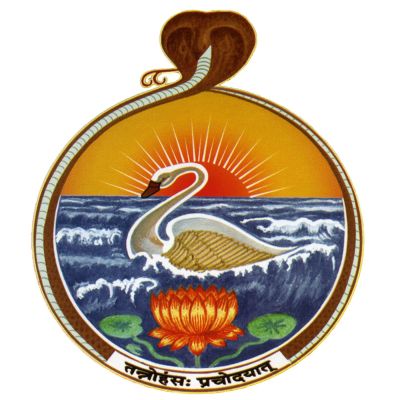Swami Tattwamayananda, currently the Minister of the Vedanta Society of Northern California, San Francisco, (originally founded by Swami Vivekananda in 1900) served in various centers of the Ramakrishna Order in India as editor, publisher, and teacher of Sanskrit, Advaitic texts such as Sri Shankaracharya's commentaries on the 'Prasthanatraya' (the fundamental Sanskrit texts of Vedanta philosophy), Buddhism and Indian philosophy. He underwent traditional training in Hindu scriptures, Sanskrit, Vedic and Vedantic literature for many years, from his early days. Before coming to the United States in January 2012 he was teaching Sanskrit, Vedantic scriptures and Indian philosophy at the Training center in Belur Math, the institution that trains the monks of the Ramakrishna Order at the headquarters of the Ramakrishna Mission, Kolkata, India. Apart from his traditional education, the Swami has also received modern University education in English literature, psychology, European history, and Western philosophy. He is frequently invited for lectures on Yoga, Vedanta, and traditional Hindu scriptures and for participating in interfaith dialogues.For more:Web: www.sfvedanta...
https://www.spreaker.com/show/featured-lectures
Vivekachudamani 1 | Three Rare Divine Gifts: Human Birth, Longing for Freedom, and the Company of Great Souls | Swami Tattwamayananda
Vivekachudamani Verses: 1-7, 11, 15, 18, 19
This lecture was given by Swami Tattwamayananda at Stanford University. The lecture was hosted by the Stanford Hindu Students Association.
-Viveka means a discerning wisdom between the long lasting and real versus the short-lived and unreal. It is a reprioritization towards the beneficial and long lasting.
-Shankaracharya, the author of the text, may be one of the greatest geniuses the world has ever produced. Before Sri Shankaracharya, the idea of Advaita or nondualistic philosophy existed because it is as old as Rig Veda itself, but the formulation of a complete and compact philosophical structure, expounding its metaphysics, ontology, cosmology, logic, and epistemology, was entirely his contribution.
-Vivekachudamani is a great introductory text because it teaches the philosophy and the culture of spiritual life in 584 verses.
-Shankaracharya’s teacher was Govinda Bhagavatpada.
-Human birth, longing for freedom, and the company of great souls are three rare gifts from God. A great soul is one whose company stimulates your desire for higher life.
-It is spiritual suicide to reject our own spiritual nature if we have been given all the advantages for the realization of our spiritual nature.
-Action and rituals are not wrong but they cannot, on their own lead to spiritual realization. They serve to purify the mind.
-The proof of a pure mind is unshakeable inner contentment, which is unrelated to any external circumstances (santosha or citta-prasada or citta-shuddhi)
-Epoch makers in spiritual life always get linked to an ancient tradition through a guru. The guru is necessary to understand the reality of the spiritual reality which is apparently invisible at the beginning.
-Viveka, a reprioritization towards the Real or unchanging (nitya) and away from the Unreal or fleeting (anitya) is the first of the four disciplines of Vedanta. It is foolish to imagine eternal happiness in the obviously imperfect world. Saints internalize this fact, conserve energy and are able to work with complete concentration and do tremendous work.
-Mumukshutvam, the yearning for truth and freedom supports all of the qualities needed for a Vedantic aspirant. Without a higher non-worldly ideal, psychological depression is almost certain.
-Sri Ramakrishna’s parable of the four kinds of fish is used to illustrate mumukshutvam.
